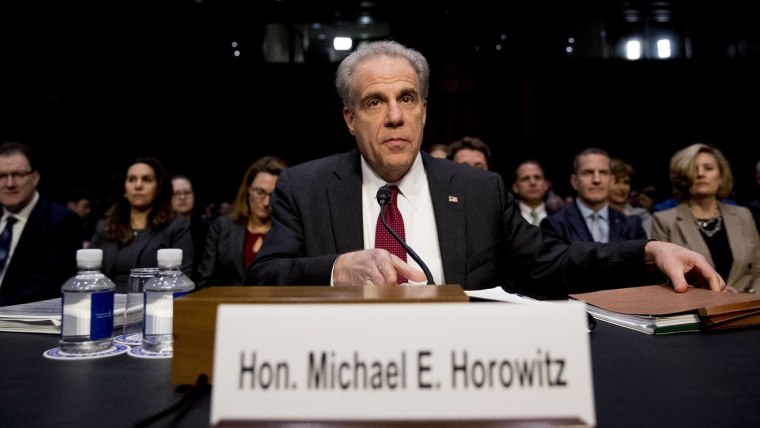In the aftermath of Edward Snowden’s stunning disclosures in 2013 about hitherto secret — and deeply controversial — U.S. surveillance programs, Congress spent the better part of 18 months debating how to reform the Foreign Intelligence Surveillance Act (FISA), the statute on which those programs were putatively based. Although some of the debate focused on reining in the government’s substantive authorities, perhaps the central theme that emerged was how Congress could — and should — make judicial review by the FISA court more robust and more skeptical of the government’s submissions.
The central theme that emerged was how Congress could — and should — make judicial review by the FISA court more robust.
At that time, one of the most popular reform proposals was the creation of a “special advocate” who could take a position adverse to the government in all — or even most — cases before the court, and who could force the government to dot its i’s and cross its t’s.
Get the think newsletter.
By September 2014, a compromise bill that had received the sign-off, if not the endorsement, of the Obama administration had emerged — only to fall just short of the 60 votes necessary to clear cloture in the Senate. Sen. Rand Paul, R-Ky. — whose “no” vote was, by most accounts, the nail in the coffin — objected that the reforms were too modest. Paul’s objection notwithstanding, Congress in 2015 passed an even more modest compromise — the USA FREEDOM Act. Under that statute, the “special advocate” is merely a friend of the court — and can only participate in cases if a judge determines that the dispute “presents a novel or significant interpretation of the law.” In other words, the court gets to decide when it needs help, something that was true even before 2015.
Fast forward to the present, and the firestorm ignited by the Carter Page FISA application. As the Justice Department inspector general has now made clear, the government’s abuses and misrepresentations to the FISA court in Page’s case were part of a larger, endemic pattern — not a partisan vendetta by the Obama administration, but a subtler, more pernicious proclivity to provide incomplete information and insufficient candor in all cases to the judges tasked with overseeing foreign intelligence activities on U.S. soil. And once again, Congress is debating reforms to FISA in response, aided by the imperative of reauthorizing three provisions of FISA that expired earlier this year.
Apparently, though, Congress still hasn’t learned its lesson. Consider an amendment sponsored by Sens. Mike Lee, a Utah Republican, and Patrick Leahy, a Vermont Democrat, that passed the Senate Wednesday in a bipartisan 77-19 vote. The amendment would add to the list of cases in which the FISA court is allowed to appoint a “special advocate,” to include cases involving new programs or new technologies and cases presenting other novel or especially concerning characteristics.
The amendment would still leave it up to the FISA court to decide if a case meets any of these amorphous criteria.
The amendment would still leave it up to the FISA court to decide if a case meets any of these amorphous criteria. And even if a case meets those criteria, the judge can still prevent the involvement of a special advocate if it “issues a finding that such appointment is not appropriate.” Simply put, this amendment would not have required the appointment of a special advocate in Carter Page’s case or most of the others highlighted as problematic by the DOJ inspector general — and therefore would likely not have prevented the exact same abuses from occurring.
Worse still, the Lee-Leahy amendment cherry-picks those cases in which a judge is even encouraged to appoint a special advocate — including a new focus on “sensitive investigative matters” (which the amendment defines principally as investigations into public officials, candidates for office and domestic religious or political organizations); and cases raising (ill-defined) “civil liberties issues.” In other words, the amendment would again leave it to the FISA court to decide whether a case even qualifies based upon subjective — and almost certainly incomplete — criteria. And all of this assumes the amendment will pass in the House, which is hardly a given.
There are obvious ways to give teeth to these reforms. First, the special advocate should not just be at the whim of the FISA Court, but should have an absolute right to participate in the categories of cases Congress has identified. Second, instead of the subjective criteria proposed by the Lee-Leahy amendment, the special advocate should be allowed to participate in any case in which the target of FISA surveillance is a U.S. person — and in cases involving programmatic surveillance or novel programs or technologies directed at non-U.S. persons. Finally, the Justice Department’s inspector general should be required to perform regular audits of the government’s applications to the FISA court — and not just irregular audits after abuses are exposed.
When the idea of a special advocate was first proposed in the post-Snowden reform debate, some of the loudest opposition came from the FISA court itself — including then-presiding Judge John Bates. Among the objections were that having a special advocate involved in all cases would bog down the proceedings. But according to the Office of the Director of National Intelligence’s Statistical Transparency Report for Calendar Year 2019, the government only sought FISA warrants against U.S. persons in 167 cases — 15.8 percent of the total.
Having one of the five designated special advocates participate in each of those cases seems a small price to pay to ensure that Americans’ civil liberties are protected. And as much as that should have been clear to Congress six years ago, it should be undeniable now.












